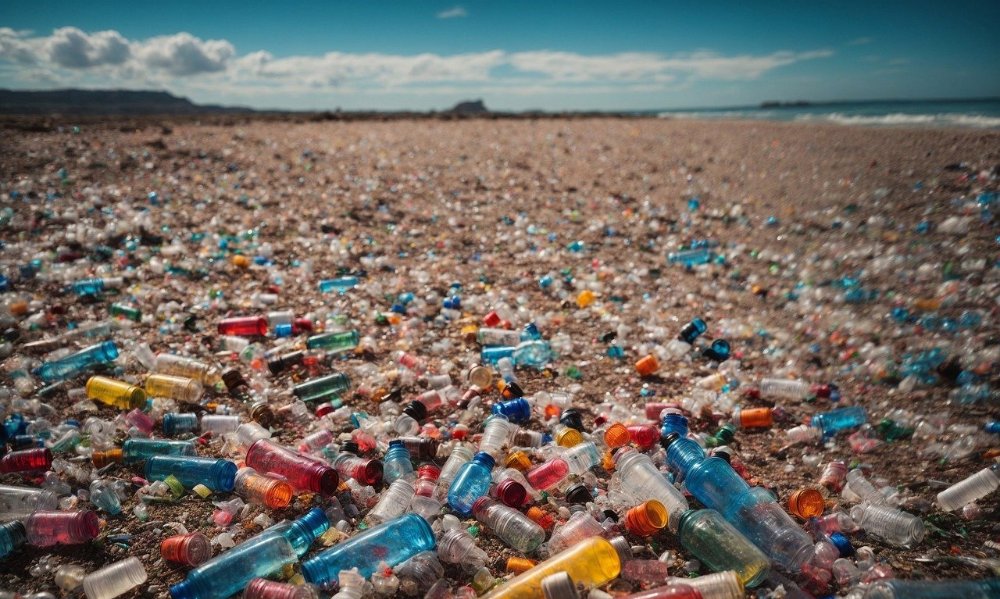It took me a vacation in Baja to fully appreciate the long, tenacious campaign by former Seattle City Councilmember Mike O’Brien to ban polluting, single-use plastic bags.
The Baja landscape was stunning, but there was plastic everywhere, particularly on beaches. I’ve since learned that 9-14 million metric tons of the stuff go into the earth’s oceans each year.
We are trashing the planet with trash. The stuff is lethal to life in our oceans, killing perhaps a million seabirds each year. Sea turtles are severely impacted. I remember demonstrators in turtle costumes, seeking global attention, at the WTO summit a quarter century ago.
Under aegis of the United Nations, delegates from around the world gathered recently at Busan in South Korea to sign an agreement to reduce plastic production and ban single use plastic products. They were joined by 220 lobbyists from the fossil fuel and plastic industries. The result was an impasse, and the usual agreement to meet again next year.
Delegates from more than 100 countries, notably much of the developing world, supported a binding agreement. But major fossil fuel producers — notably Russia, Iran, and Saudi Arabia — balked at limiting plastics production. They insisted that any action on single use products be voluntary.
The chief Saudi delegate, Abdulrahman al-Geadz, engaged in sophistry, saying: “If you address plastic pollution, there should be no problem producing plastics because the problem is the pollution, not the plastics themselves.”
But the foot dragggers were called out by Juliet Kabera, a delegate from Rwanda. In his words, “We voice our strong concerns about ongoing calls by a small group of countries to remove binding provisions from the text that are indispensable for the treaty to be effective.”
O’Brien got his bag ban. The Washington Legislature enacted a ban on single-use carry-out bags as well as disposable plastic utensils. Large paper carry-out bags are legal if 882 cubic inches or larger, and contain at least 40 percent post-consumer recycled content or wheat straw.
Washington, Oregon and California all have enacted bag bans. A ban in British Columbia took effect on July 15th. The European Union has recently enacted a bag ban that also includes plastic stirrers, straws, plates, and cutlery. China enacted its ban in 2008. A ban in India, similar to the EU’s, took effect in July of 2022.
The consequences of plastics pollution are at our doorstep. What’s known as the Great Pacific Garbage Patch covers an area of the eastern Pacific three times the size of France. Almost all the pollution is in tiny fragments, 80 percent from land based sources. The Patch holds an estimated, eye-popping 1.8 trillion pieces of plastic.
Despite the bans, studies show the equivalent of one garbage truck full of pollutants goes into the world’s oceans every minute. Scientists have counted 267 species impacted, with a lethal combination of suffocation, starvation, and drowning.
Canada has enacted a bag ban but the U.S. has lagged. During her first stint as House Speaker, Nancy Pelosi decreed that plates, cups, and cutlery in Capitol dining facilities be compostible. The requirement was scrapped the moment Republicans regained control of the House.
We are seemingly addicted to waste. In a famous scene from The Graduate, Mrs. Robinson gives one word of career advice to young Benjamin: “Plastics.”
As the Busan negotiations broke down, Graham Forbes of Greenpeace held out hope for a binding treaty: “‘The opportunity to secure an impactful plastics treaty that protects our health, biodiversity, and climate remains in reach.”
Sure hope he’s right.
This article also appears in Cascadia Advocate.
Discover more from Post Alley
Subscribe to get the latest posts sent to your email.

Yep. And note the huge increase of plastic yard Christmas decorations.
Joel,
I would love to walk you through some greenbelts, urban hiking trails, and parks right here in Seattle that will blow your mind how we have allowed millions of lbs of trash to accumulate right here in our emerald city…not to mention county and statewide. My organization, We Heart Seattle, along with a Cleaner Alki together have removed 2,500,000 lbs of trash from Seattle in 4 years. And all of it went to the dump. It was impossible to recycle as most the plastics we found had urine in them What to do? Additionally, we removed thousands of tires and propane tanks and appliances of all kinds that were illegally dumped. When do we stop banning tires? Please check out what we can all do on a local level Here is a vid where we cleaned 10,000 of trash and about 1000 bottles from Eastllake area in about 2 hours. https://youtu.be/e_hp9R8W0X0
Some grocery stores give out plastic bags under the guise that they are reusable, not one-time-only. I always object to the cashier but would like to do more to stop this practice.
Thanks for this essay decrying the ongoing pollution of our precious planet. Plastics are contaminating land and sea. If there is no way to find a just and sane path to eliminating this ecological catastrophe, humanity along with so many other species will suffer the abysmal consequences. It is imperative that we invigorate a deepened respect for Mother Earth, and for each other.
In the movie The Graduate, it is Mr. McGuire who urged Benjamin to consider plastics as a career move, not Mrs. Robinson.